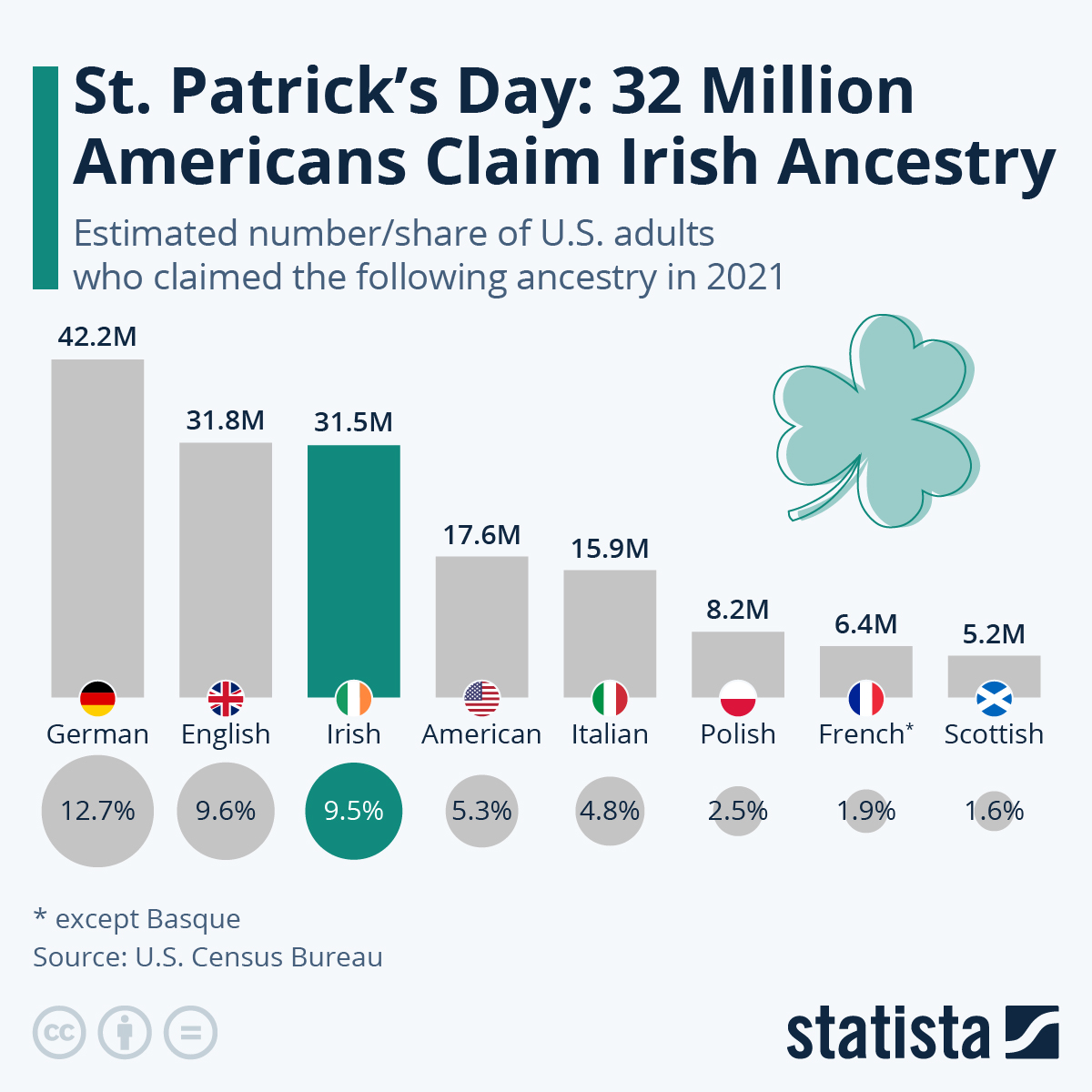Even though Saint Patrick's Day is a major event in Ireland, it is also huge in the United States where a large Irish diaspora celebrates the holiday in style. U.S. Saint Patrick's Day traditions even tend to go a step further than the Emerald Isle with Chicago dying its river green in an impressive display. The first ever parade on Saint Patrick's Day was actually held in the U.S. and it occurred in New York City all the way back on March 17, 1762.
The connection between the U.S. and Ireland has remained strong for years and Congress designated March as Irish-American Heritage Month in 1991. Traditionally, the Irish taoiseach (prime minister) flies to Washington D.C. every year on March 17 to present the U.S. president with a bowl of shamrock. This year's ceremony will be a virtual affair between Micheál Martin and Joe Biden.
Given the strength of those links, how many U.S. citizens can actually claim Irish ancestry? According to data from the U.S. Census Bureau, some 30.4 million Americans claimed Irish ancestry in 2019, 9.2 percent of the population. German ancestry is ahead, however, with 40.4 million U.S. citizens claiming ancestral links with Europe's economic powerhouse. A further 7.2 million Americans have historical familial ties witn England.

No comments:
Post a Comment